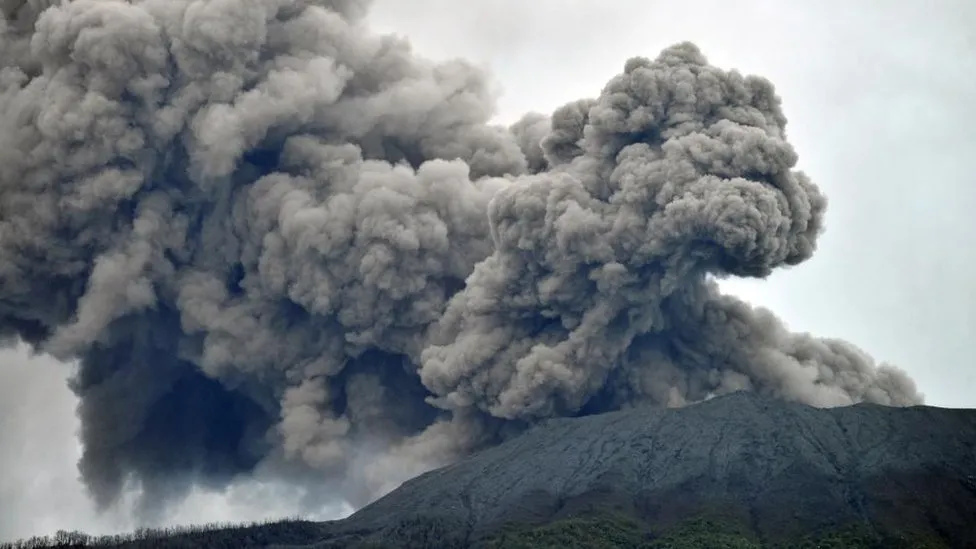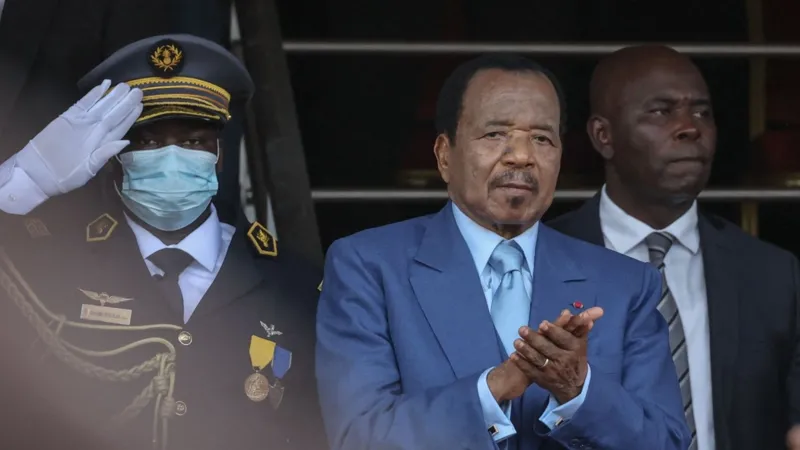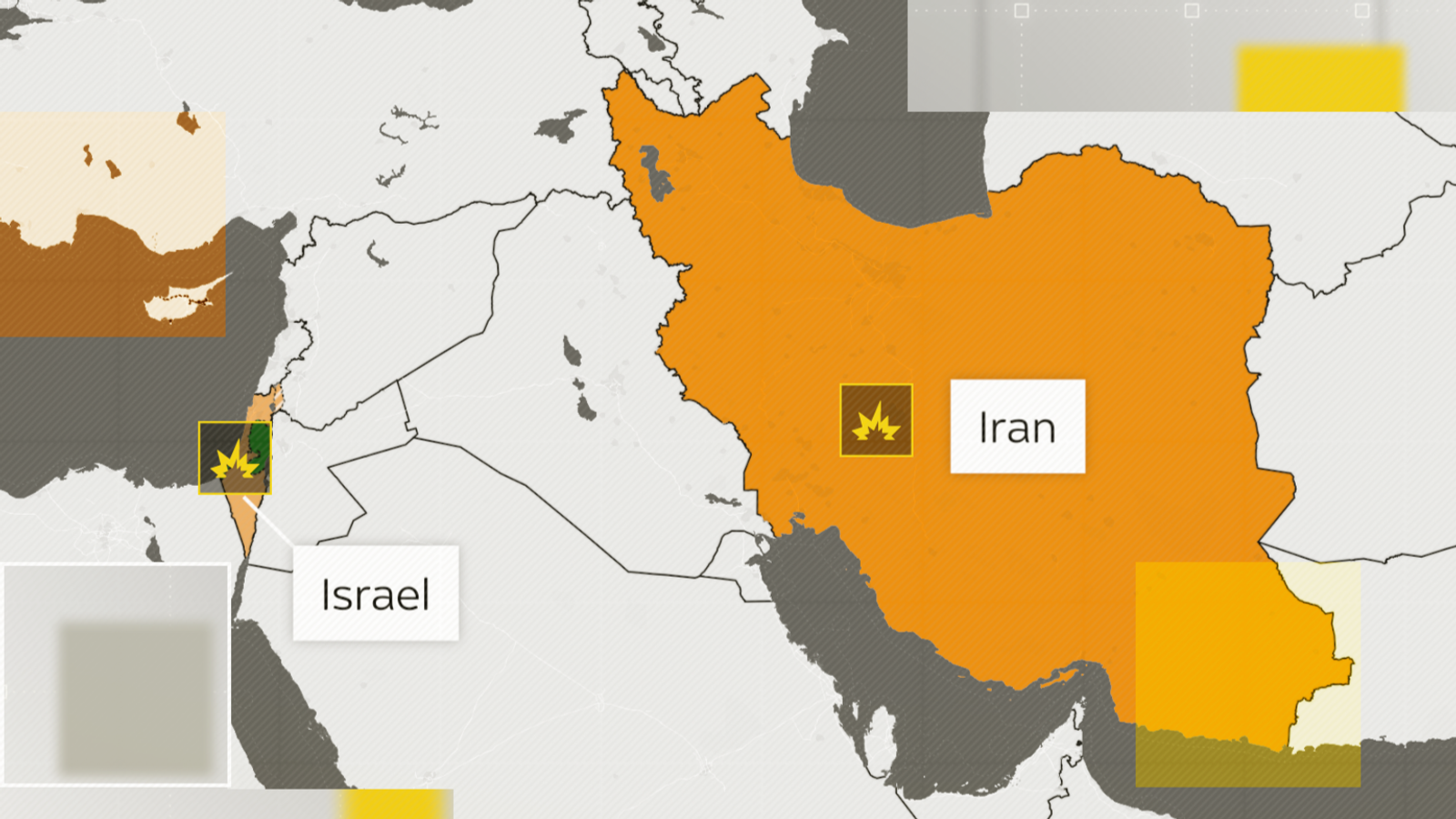Marapi eruption: Hikers recount escape from 'Mountain of Fire'
"Initially, only smoke emerged, then it started raining rocks, followed by ash. There was no warning," says hiker Irvanda Mulya.

Mr Irvanda and 17 of his friends had planned to climb Mount Marapi for more than a month. But what started out as a fun expedition up one of Indonesia's most active volcanoes took a deadly turn last weekend.
Marapi, which translates from the local Minang language to "Mountain of Fire", spewed scalding hot ash and rocks into the air on Sunday, leaving 23 people dead due to severe burns, including 12 from the group.
Mr Irvanda survived with extensive injuries along with his friend, Muhammad Fadli. They told the BBC how the eruption unfolded on the slopes of the mountain.
The group of friends, most of whom met in school, decided to hike Marapi "just to have fun". While most of them were avid mountaineers, seven of them were climbing a mountain for the first time. Marapi seemed like a sensible option as they live in Padang, a city three hours away, which is close by local standards.
Marapi stands at 2,891m (9,485 ft) in West Sumatra province. It is one of Indonesia's 127 volcanoes. The country is located on the Pacific "Ring of Fire", where the meeting of continental plates causes high volcanic and seismic activity.
'There was no warning'
The group arrived at Marapi's base camp last Friday and started their push to the summit early the next day. They spent Saturday night in tents set up around a small white monument called Tugu Abel, about 600m from the peak. It was named after a man who died when Marapi erupted in 1996.
It rained heavily when the group reached the peak on Saturday, Mr Irvanda said. But the poor weather that continued throughout the night did not douse their enthusiasm. They were greeted with amazing views at sunrise on Sunday and some considered staying through sunset.
Eventually, they decided to start their descent early. Mr Fadli, Mr Irvanda and two others went ahead at about 15:00 local time (0800 GMT).
All of a sudden, the ground started to shake.
"I covered my mouth to avoid inhaling ash. I ran downhill, tumbled for a bit, saw [my friend] Bima already below, helped him briefly, and then both of us continued descending," Mr Irvanda said.
Mr Fadli broke his finger trying to dodge stones falling from the sky with his hands. One rock hit his leg, causing a fracture.
"I forced myself to walk. I used my heels to continue down the path… We kept trying to move downhill by constantly looking for places to protect ourselves on the cliffs," he said.
The group slowly made their way down the mountain in treacherous conditions and with multiple injuries, trying to avoid a cloud of heat, and occasionally taking cover behind large rocks. They were driven not only by desperation to survive, but also a sense of responsibility for each other's safety.
"We were the only hope. We were the only team already going down. So that we can call the search and rescue team to evacuate people who are still at the top," Mr Fadli said.
A fifth hiker, who caught up with the four leaders, managed to contact the National Search and Rescue Agency, which instructed them to wait at a fork in the road where they could be picked up. The five then continued to climb down, and managed to help two other female hikers along the way.
It would be five hours before rescuers arrived. The group had gone without food, but Mr Fadli said he did not feel hungry. "Because I had ashes inside my mouth too," he said.
'Run, Marapi is erupting'
Another hiker, Muhammad Iqbal, descended from Marapi with a different group and reached the foot of the volcano just before it erupted. He said he was surprised to hear a troop of monkeys screaming frantically.
"[They sounded] excited, like they were calling the king or something. They were roaring," he said.
And then, a farmer ran past him, screaming, "Run, boy, run, Mount Marapi has erupted."
"At first, we thought she was kidding. We didn't hear any eruption," Mr Iqbal said.
"But when we reached the [end] point, people were gathering and we saw some of them running. Someone was speeding off with their motorbike," he said.
When he finally came to terms with what had just happened, Mr Iqbal was shocked.
"My mind went blank. I was playing near the crater of Mount Marapi just hours ago," he said, adding he felt lucky to have gone down before the eruption.
Officials said most of the 75 hikers in Marapi during the eruption were evacuated and received treatment for burns. Twelve injured victims were undergoing treatment in hospital, as of Wednesday.
In the days that followed, Mr Iqbal began to question why there were no warning signs - save for the screaming monkeys - or clear instructions to stay away from dangerous spots.
Marapi has stayed on the second-highest alert level of Indonesia's four-step warning scale since 2011. People are not allowed within a 3km radius from the peak - but this was not made clear to the hikers that the BBC spoke to.
"Why were we still allowed to climb Marapi, even to the crater, like I did?" said Mr Iqbal, who was attempting the hike for the first time.
Experts told the BBC the death toll could have been minimised if hikers were prohibited from lingering so close to the crater.
Dian Indriati, who leads the West Sumatra Natural Resources Conservation Agency, said officials had installed a sign saying that the area was "extremely dangerous", but hikers appeared to have ignored it.
Eko Teguh Paripurna, a disaster management specialist from UPN Veteran Yogyakarta, said authorities approved hiking permits with inadequate requirements, while climbers appeared to have underestimated the dangers ahead.
Mr Fadli and Mr Irvanda said they would not climb mountains for a while.
"I am grateful for being given a chance at life by God… But many of my friends lost their lives. This trauma runs deep.
"This is what bothers me so much in my sleep, because I failed to save all of my friends," Mr Irvanda said.
-bbc






